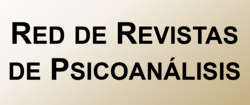Code of Ethics
Pathos journal seeks to encourage proper editorial practice, in terms of ethical conduct, by all actors involved in the process of admission, evaluation and publication of a scholarly article. For this reason:
It is a condition for the acceptance of any article that it is original and has not been published in whole or in part elsewhere. Before the article is reviewed by external reviewers, Pathos journal guarantees that it complies with the ethical standards established by international bodies, such as the American Psychological Association or the Committee on Publication Ethics, as well as the national legislation and standards that apply in each case, depending on the type of research.
In this regard, the roles and obligations of each of the parties involved in the editorial process are detailed below:
Authors
- Be in full agreement and act in accordance with the statement of ethical standards rehearsed in this section, which implies compliance with the anti-plagiarism policy, and be in accordance with the copyright policy and guidelines for authors upheld by the journal.
- They agree to submit only original articles, which have not been submitted to another journal or publisher.
- They will be held responsible for the opinions, results or conclusions held in their articles.
- Include only those authors/co-authors who have contributed significantly to the work submitted. Likewise, they undertake to have the consent of all parties involved - In the event that the editorial board becomes aware of authorship problems or conflicts, authors will be contacted for further information-.
- Correctly provide the sources, data and substantial information used in the preparation of the article.
Editorial Entity
- To guarantee and protect intellectual property and copyright.
- To preserve the intellectual integrity of the entire process, and to prevent interests of any kind from influencing the editorial process.
- Commit to continuous progress, to improve the editorial quality and the quality of the material to be published.
- Make and make public clarifications, retractions and apologies.
- Preserve and conserve the supporting data of the articles.
- To protect the identity of the reviewers and authors involved.
Reviewers
- Not maintain any relationship with the authors, nor influence the editorial process for any interest.
- Carry out an objective evaluation, and provide adequate and prolific corrections to guarantee the quality of the articles.
- Evaluate papers within the established deadlines.
- Not to keep or copy the papers that have been sent to them.
⸺⸺⸺⸺⸺⸺⸺⸺⸺⸺⸺⸺⸺⸺⸺⸺⸺⸺⸺⸺⸺⸺⸺⸺
ANTI-PLAGIARISM POLICY
Pathos Journal upholds a strict anti-plagiarism policy, with the aim of developing and encouraging good editorial practice. To this end, when submitting an article, authors accept that it will be subjected to an exhaustive examination by the editorial team, in order to detect plagiarism or self-plagiarism, as well as any other situation that goes against the ethical standards upheld by the journal.
For this purpose: The editor uses a set of search tools available on the internet to detect plagiarism and verify the originality of the submission; the external reviewer is asked to notify the journal in case of detecting plagiarism or any other element that raises suspicion of plagiarism, according to his/her knowledge.
In the event that the Editorial Entity becomes aware of a case of plagiarism, the editorial process will not continue and the article will be rejected. If the plagiarism detected is aggravated by its severity and repetition, more serious action will be taken.









